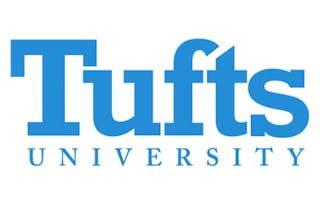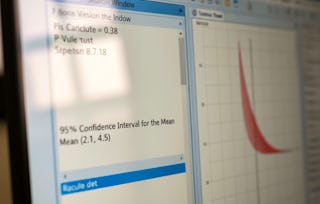This introductory course is for SAS software users who perform statistical analyses using SAS/STAT software. The focus is on t tests, ANOVA, and linear regression, and includes a brief introduction to logistic regression.

Introduction to Statistical Analysis: Hypothesis Testing

Introduction to Statistical Analysis: Hypothesis Testing
This course is part of SAS Statistical Business Analyst Professional Certificate

Instructor: Jordan Bakerman
23,303 already enrolled
Included with
175 reviews
Skills you'll gain
Details to know

Add to your LinkedIn profile
28 assignments
See how employees at top companies are mastering in-demand skills

Build your Data Analysis expertise
- Learn new concepts from industry experts
- Gain a foundational understanding of a subject or tool
- Develop job-relevant skills with hands-on projects
- Earn a shareable career certificate from SAS

There are 4 modules in this course
In this module you learn about the course and the data you analyze in this course. Then you set up the data you need to do the practices in the course.
What's included
2 videos6 readings
In this module you learn about the models required to analyze different types of data and the difference between explanatory vs predictive modeling. Then you review fundamental statistical concepts, such as the sampling distribution of a mean, hypothesis testing, p-values, and confidence intervals. After reviewing these concepts, you apply one-sample and two-sample t tests to data to confirm or reject preconceived hypotheses.
What's included
17 videos2 readings9 assignments
In this module you learn to use graphical tools that can help determine which predictors are likely or unlikely to be useful. Then you learn to augment these graphical explorations with correlation analyses that describe linear relationships between potential predictors and our response variable. After you determine potential predictors, tools like ANOVA and regression help you assess the quality of the relationship between the response and predictors.
What's included
29 videos2 readings14 assignments
In this module you expand the one-way ANOVA model to a two-factor analysis of variance and then extend simple linear regression to multiple regression with two predictors. After you understand the concepts of two-way ANOVA and multiple linear regression with two predictors, you'll have the skills to fit and interpret models with many variables.
What's included
13 videos1 reading5 assignments
Earn a career certificate
Add this credential to your LinkedIn profile, resume, or CV. Share it on social media and in your performance review.
Instructor

Offered by
Explore more from Data Analysis
 Status: Preview
Status: PreviewTufts University
 Status: Preview
Status: Preview Status: Free Trial
Status: Free TrialAmerican Psychological Association
 Status: Free Trial
Status: Free Trial
Why people choose Coursera for their career

Felipe M.

Jennifer J.

Larry W.

Chaitanya A.
Learner reviews
- 5 stars
78.28%
- 4 stars
16%
- 3 stars
2.28%
- 2 stars
1.14%
- 1 star
2.28%
Showing 3 of 175
Reviewed on Jun 14, 2021
Thank you so much to the instructor, Jordan Bakerman for teaching this course.
Reviewed on Dec 6, 2025
excellent course - moreless a refresher course for me but still an excellent overall very thorough study
Reviewed on Sep 29, 2023
The Course was excellent. The study materials were very clear and understandable.

Open new doors with Coursera Plus
Unlimited access to 10,000+ world-class courses, hands-on projects, and job-ready certificate programs - all included in your subscription
Advance your career with an online degree
Earn a degree from world-class universities - 100% online
Join over 3,400 global companies that choose Coursera for Business
Upskill your employees to excel in the digital economy
Frequently asked questions
To access the course materials, assignments and to earn a Certificate, you will need to purchase the Certificate experience when you enroll in a course. You can try a Free Trial instead, or apply for Financial Aid. The course may offer 'Full Course, No Certificate' instead. This option lets you see all course materials, submit required assessments, and get a final grade. This also means that you will not be able to purchase a Certificate experience.
When you enroll in the course, you get access to all of the courses in the Certificate, and you earn a certificate when you complete the work. Your electronic Certificate will be added to your Accomplishments page - from there, you can print your Certificate or add it to your LinkedIn profile.
More questions
Financial aid available,

